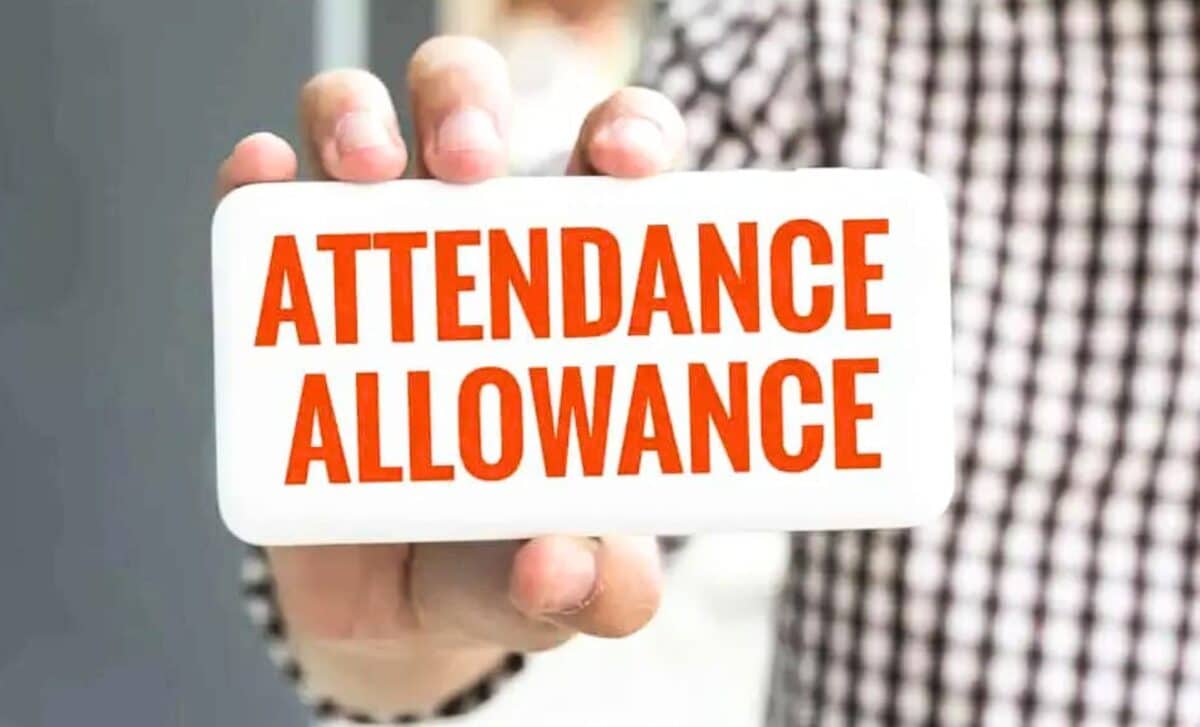According to the Department for Work and Pensions (DWP) almost 1.6 million older people were receiving extra financial support through Attendance Allowance at the end of November 2023.
This marks an important rise of 46,098 recipients compared to the last quarter ending in August 2023.
Understanding Attendance Allowance: Support, Eligibility, and Claim Process
Attendance Allowance offers either £72.65 (lower rate) or £108.55 (higher rate) per week to those who qualify. Provided every four weeks, this totals either £290.60 or £434.20 per pay period — accumulating £5,644.60 over the 2024/25 fiscal year.
The amount obtained is based on the level of support required. The benefit is designed to support people of State Pension age with their regular expenses, helping them maintain autonomy in their own homes. It’s essential to remember no mobility component is attached to Attendance Allowance.
This benefit provides assistance to people with disabilities, chronic diseases, and physical and mental health issues. The list of health issues supported by Attendance Allowance is extensive, however arthritis is the prevalent disabling condition, offering assistance for 449,077 people all over Great Britain, including 41,055 in Scotland.
Below you will find all the pertinent details regarding Attendance Allowance, including the primary health conditions being claimed, eligibility criteria, and how to submit a claim.
Number of Attendance Allowance Recipients:November 2023
- Scotland:140,716
- England: 1,321,779
- Wales: 103,653
- Living abroad: 5,323
- Total: 1,571,519
Major Health Conditions Supported by Attendance Allowance
The health conditions listed hereunder are derived from data recorded on the DWP’s Attendance Allowance computer system.
It’s crucial to note the list provided below is not a checklist for claiming Attendance Allowance, it is meant to help people understand the type of conditions that are being supported.
However, if you need additional assistance during the day or night due to a chronic disease, disability or health condition, you should check out the official qualification criteria on the GOV.UK website here.
Primary Medical Issues Providing Support to Older People Across Great Britain
- AIDS
- Alcohol and Drug Abuse
- Arthritis
- Asthma
- Back Pain
- Behavioural Disorder
- Blood Disorders
- Bowel and Stomach Disease
- Cerebrovascular Disease
- Chronic Pain Syndromes
- Cystic Fibrosis
- Dementia
- Deaf/Blind
- Diabetes Mellitus
- Disease Of The Muscles, Bones or Joints
- Double Amputee
- Epilepsy
- Frailty
- Haemodialysis
- Haemophilia
- Hearing Disorders
- Heart Disease
- Hyperkinetic Syndrome
- Infectious diseases: Viral disease – Coronavirus COVID-19
- Inflammatory Bowel Disease
- Learning Difficulties
- Major Trauma Other than Traumatic Paraplegia/Tetraplegia
- Malignant Disease
- Metabolic Disease
- Motor Neurone Disease
- Multiple Allergy Syndrome
- Multiple Sclerosis
- Neurological Diseases
- Peripheral vascular Disease
- Personality Disorder
- Psychoneurosis
- Psychosis
- Renal Disorders
- Respiratory Disorders and Diseases
- Severely Mentally impaired
- Skin Disease
- Spondylosis
- Total Parenteral Nutrition
- Trauma to Limbs
- Traumatic Paraplegia/Tetraplegia
- Visual Disorders and Diseases
Attendance Allowance also supports 44,894 people with a terminal illness.
Who Can Claim Attendance Allowance?
You can submit an application for Attendance Allowance if you have an illness or disability and require assistance or supervision throughout the day or at times over the night, even if you don’t presently get that help.
This can include:
- Assistance with your personal care — for example to get dressed, eat or drink, get in and out of bed, bath or shower and go to the restroom.
- Assistance to stay safe
You should also submit an application if you struggle with personal tasks; if they take a significant amount of time, you feel pain, or you require physical help, like using a chair for support.
Attendance Allowance is not only for people with a physical disability or illness.
You can also claim if you need assistance or supervision throughout the day or night and have:
- A mental health condition.
- Cognitive impairments.
- A sensory condition: if you are deaf or visually impaired.
How to Make a Claim?
When you apply for Attendance Allowance, you will need to complete a long claim form. It might seem challenging at first, but help is available from your closest Citizens Advice.









